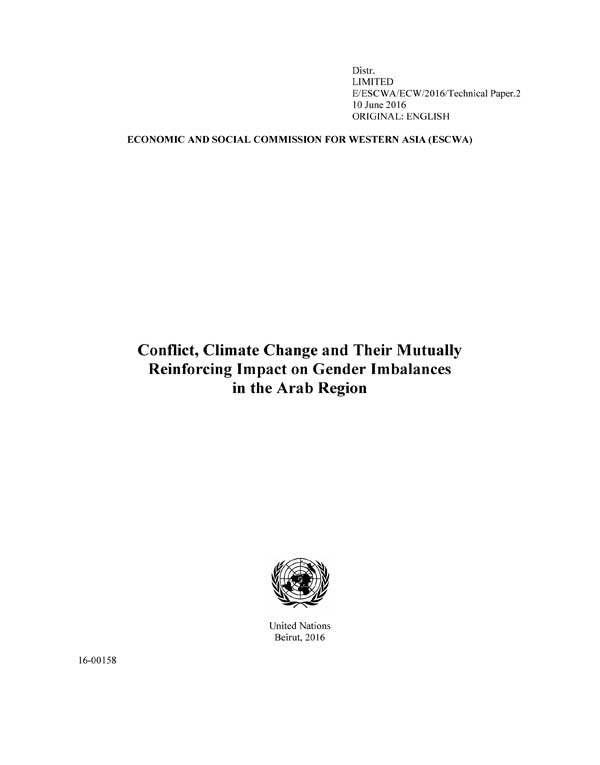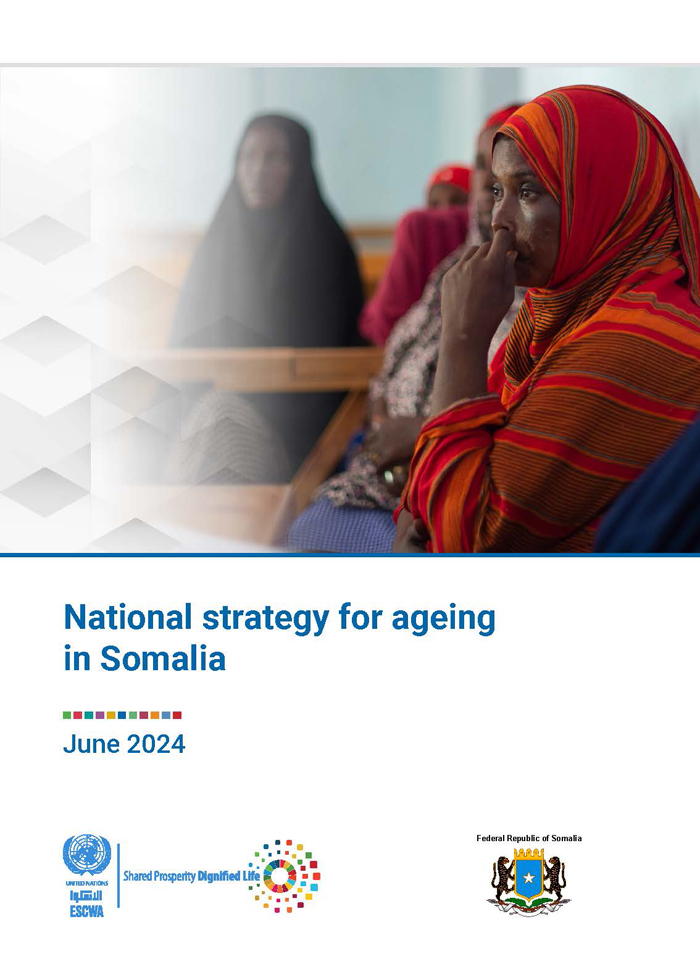
ESCWA Publication: E/ESCWA/ECW/2016/Technical Paper.2
Country: Arab region
Publication Type: Policy briefs
Cluster: Gender Justice, Population and Inclusive Development
Focus Area: Gender equality
Initiatives: Women, peace and security
SDGs: Goal 13: Climate Action
Keywords: Arab countries, Climate change, Development, Gender, Gender equality, Girls, Global warming, Women, Women in armed conflicts, Agriculture, Food security, Gender discrimination, Land, Water
Conflict, climate change and their mutually reinforcing impact on gender imbalances in the Arab region 2016
January 2016
The present policy brief analyses the impacts of conflict and climate change on gender imbalances in the Arab region. It shows how conflict and climate change fortify one another, creating a bidirectional dynamic that aggravates women’s pre-existing vulnerabilities in the region. On the one hand, this policy brief addresses how the consequences of climate change encourage conflict, civic unrest and political upheaval, thus significantly contributing to displacement. On the other hand, it analyses how conflict in the region adds to climate change by compromising environmental resources, such as access to land, agriculture, water and food security.
Within this framework, the policy brief finds that gender inequality in the Arab region makes women more vulnerable to the mutually reinforcing impacts of conflict and climate change. This paper therefore proposes a set of recommendations aimed at environment policymakers to ensure the effective integration of a gender perspective in all stages of the public policy cycle.
Related content
Gender equality
,
The present policy brief analyses the impacts of conflict and climate change on gender imbalances in the Arab region. It shows how conflict and climate change fortify one another, creating a bidirectional dynamic that aggravates women’s pre-existing vulnerabilities in the region. On the one hand, this policy brief addresses how the consequences of climate change encourage conflict, civic unrest and political upheaval, thus significantly contributing to displacement. On the other hand, it analyses how conflict in the region adds to climate change by compromising environmental resources, such as access to land, agriculture, water and food security.
Within this framework, the policy brief finds that gender inequality in the Arab region makes women more vulnerable to the mutually reinforcing impacts of conflict and climate change. This paper therefore proposes a set of recommendations aimed at environment policymakers to ensure the effective integration of a gender perspective in all stages of the public policy cycle.



